Making a Cat More Friendly: Fay's Progress
The JCN shelter has a number of less socialized cats who don’t really like (or more accurately trust) people. They may have been living stray and not had much human company when they were young, or possibly worse, they may have had interactions with unfriendly humans, which frightened them.
Different cats behave differently. Some just run away and hide—there are a number of those at the JCN shelter—others will stand their ground but hiss aggressively. Fay was one of these cats. She didn't run away, but she let you know that she wasn't keen on people and didn't want to be approached.
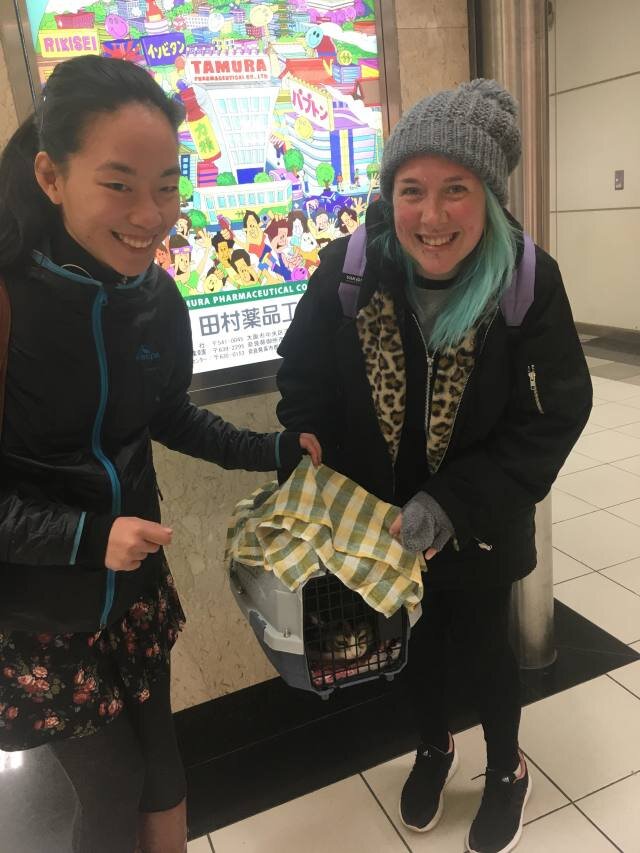
All the cats in the JCN shelter benefit from one great and important thing to help them become friendlier with humans, and that is that they see humans multiple times every day, even if those humans are not interacting with them directly. They see people come into their room, clean up, provide water, and super important, bring them food! This repeated situation of being close to humans who are doing them no harm, not trying to touch them and providing food, slowly builds trust with less socialized cats, who may then eventually begin to become less afraid.
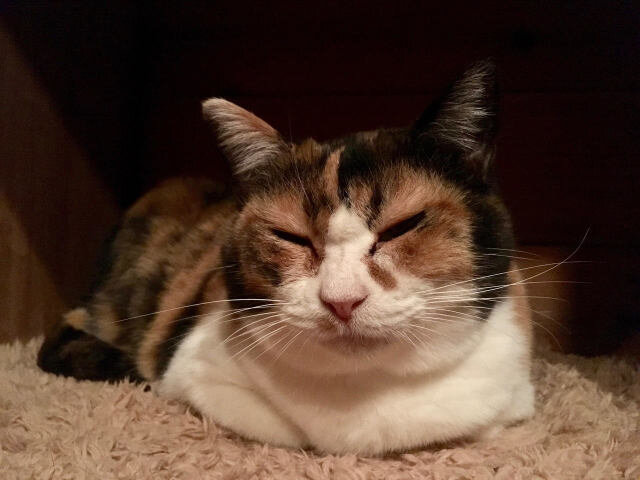
Speaking about Fay specifically… Fay is a cat with a lot of personality and not all of it is friendly. She has a cute cross look about her and she always hissed loudly whenever a human got within half a meter of her. However she didn’t run away and only sometimes tried to scratch or behave aggressively, and even then her scratching was fairly gentle! Her hiss is pretty loud and nearly always worked in getting people to keep their distance. However, it was clear from Fay’s interest at breakfast and dinner times that she was very motivated by food.
So, myself and other volunteers started offering her treats, or even just pieces of her normal dry food, every time we went into the room. At first, we would gently drop them onto the floor in front of her because she wouldn’t let us near enough to do anything else. Very slowly over a period of about 4-5 weeks, the distance we had to keep away from her reduced. We could then get within 15 centimeters before she might hiss. Eventually, as trust grew and the association of humans and food strengthened, she began taking treats from our hands. Since then, she has begun to wait for volunteers at the door when they come into the room in the morning with breakfast and is demonstrating social cat behavior, such as rubbing herself against chairs and tables when humans are in the room bringing food. It became clear that she was relaxed with certain people and would happily eat with them standing right next to her, and eventually, she allowed herself to be stroked gently when distracted by eating.
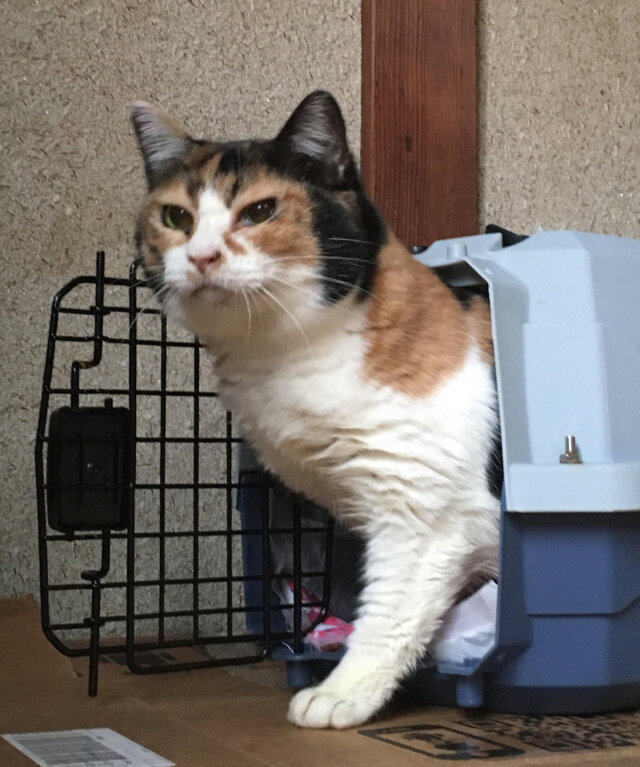
Fay is now living with us in a foster home situation in Kyoto. We hope to continue the work we’ve done with her over the next few months in the hope that she becomes even more socialized. We first visited the shelter in Spring 2016 and returned in Winter 2017. It was clear that Fay either remembered us or had made significant ongoing progress, as she took treats from our hands within the first week. She is now happy to be stroked even when not eating and when there is no food around! She purrs, approaches us for food and even occasionally rolls on her back during head scratches. At the moment she very definitely has people that she knows and trusts and then everyone else who is still greeted by the old hissing Fay - but that’s fair enough.
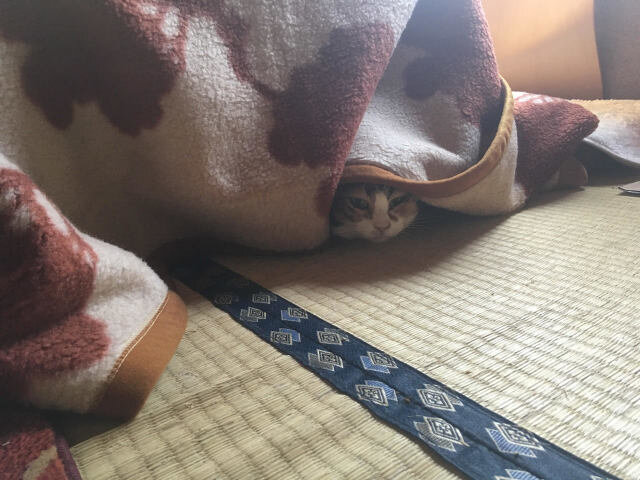
The absolute key to dealing with any unsocialized cat is patience, coupled with some compassion. Fay was a stray cat living deep in the Fukushima exclusion zone. She hadn't encountered humans and no doubt humans looked to her like another big scary predator. Even now, with people she trusts, she sometimes gets confused or surprises herself and halfway through purring and rolling around being stroked, will do a huge aggressive hiss and tap us with her claws. That’s fine, she’s learning and it’s not easy to overcome a fear. We have to respect her boundaries, continue to treat her gently and with kindness and see how she gets on.
The work with unsocialised cats is both hugely rewarding and vitally important. Sadly it is very difficult to get unsocialised cats adopted. A number of people might have space for only one cat and understandably want their cat to sit with them, allow themselves to be petted and generally be affectionate. An unsocialised cat won't necessarily be like that - at least not at first. So the work we do at JCN socializing our less-friendly cats is super important as it increases their chances of being adopted. It is also hugely rewarding. The first time Fay started purring when I was stroking her felt like a huge accomplishment and was evidence of a real bond and trust that had been created. Seeing her play with a ball for the first time, when she had previously been very sedentary and uninterested, made me smile so much I started giggling. The feeling of having made friends with an “unfriendly” cat is very special and a different bond than you get with a cat that is always friendly to everyone.
My hope with Fay is that she continues to relax around an ever-larger number of people and perhaps learns to be a sociable friendly cat. Potentially this may increase her chance of being adopted. When my wife and I eventually return to the UK and get settled back there, we hope to adopt Fay if she is healthy enough to travel that far. If she can be adopted more locally before then, then that would be an amazing success and proof that with a little patience, some perseverance, and some understanding, even the most difficult cat can become a rewarding, loveable pet.
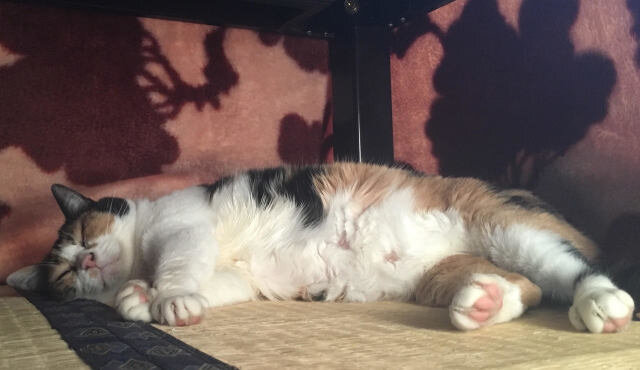 --
--
We’ll post an update on Nick & Jojo’s progress with Fay in the next couple of months, so be sure to check back again!
Want to adopt a cat? Check our pets page and get in touch to know how you can give these furry babies, a furever home.
https://japancatnetwork.org/pets/list/1

